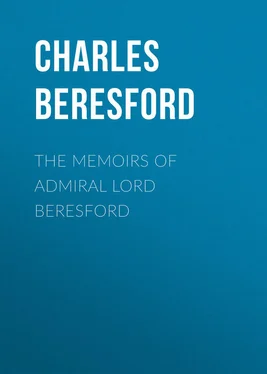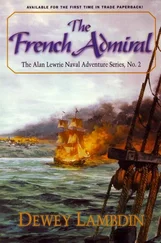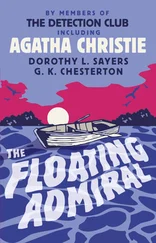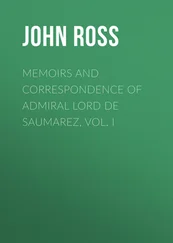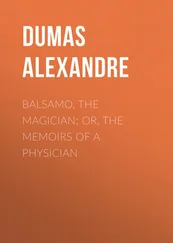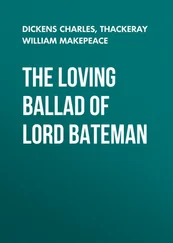Charles Beresford - The Memoirs of Admiral Lord Beresford
Здесь есть возможность читать онлайн «Charles Beresford - The Memoirs of Admiral Lord Beresford» — ознакомительный отрывок электронной книги совершенно бесплатно, а после прочтения отрывка купить полную версию. В некоторых случаях можно слушать аудио, скачать через торрент в формате fb2 и присутствует краткое содержание. Жанр: foreign_antique, foreign_prose, на английском языке. Описание произведения, (предисловие) а так же отзывы посетителей доступны на портале библиотеки ЛибКат.
- Название:The Memoirs of Admiral Lord Beresford
- Автор:
- Жанр:
- Год:неизвестен
- ISBN:нет данных
- Рейтинг книги:5 / 5. Голосов: 1
-
Избранное:Добавить в избранное
- Отзывы:
-
Ваша оценка:
- 100
- 1
- 2
- 3
- 4
- 5
The Memoirs of Admiral Lord Beresford: краткое содержание, описание и аннотация
Предлагаем к чтению аннотацию, описание, краткое содержание или предисловие (зависит от того, что написал сам автор книги «The Memoirs of Admiral Lord Beresford»). Если вы не нашли необходимую информацию о книге — напишите в комментариях, мы постараемся отыскать её.
The Memoirs of Admiral Lord Beresford — читать онлайн ознакомительный отрывок
Ниже представлен текст книги, разбитый по страницам. Система сохранения места последней прочитанной страницы, позволяет с удобством читать онлайн бесплатно книгу «The Memoirs of Admiral Lord Beresford», без необходимости каждый раз заново искать на чём Вы остановились. Поставьте закладку, и сможете в любой момент перейти на страницу, на которой закончили чтение.
Интервал:
Закладка:
We were entertained with the most delicate and sumptuous hospitality by this charming people whose courtesy greatly impressed us. Conjurers, acrobats and wrestlers performed for the entertainment of his Royal Highness; whenever we went abroad, thirty two-sworded Yaconins attended us.
The Duke went in state to visit the Mikado in his palace. All along the route the upper windows of the houses were sealed with paper, so that none should look down upon he royal visitor; a precaution only taken in the case of the highest nobility. The Duke, attended only by Sir Harry Parkes, Admiral Sir Harry Keppel and Mr. Mitford (afterwards Lord Reedsdale and author of the delightful Tales of Old Japan ), had a private audience of the Emperor, who was presented by his Royal Highness with a diamond snuff-box. Six of us were afterwards admitted to the presence. I remember the dim figure of a young man seated behind a screen at the end of the audience chamber. Many years afterwards, when I again visited Japan, the Mikado, who remembered my former visit, graciously invited me to lunch, and entertained me with the royal sport of catching ducks in a hand-net. The ducks are preserved in the royal gardens, which are charmingly diversified with lawns and running water, and flowering shrubs. As you enter, the ducks rise suddenly, and the sport was to net them as they rose.
As we remained no longer than a week in Tokio, my recollections are few. I was tattooed by the native artificers, to the astonishment of the Japanese officials and nobles; for in Japan none save the common people is tattooed. The Japanese artist designs in white upon dark, working upon the skin round the chief ornament in his scheme; whereas the English tattooer designs dark upon white, using the natural skin as a background. Both methods are beautifully illustrated upon my person.
I witnessed the decapitation of six criminals. The victims stand in a row, their hands bound behind them: each in turn is tapped on the shoulder, when he kneels down, and bows his head. With a single half-arm stroke, the executioner slices through the neck. I also saw a crucifixion. The man's hands and feet are extended and tied to cross-bars, so that he makes a figure like an hour-glass. Then he is transfixed with a spear.
On the 8th September, the Duke returned to Yokohama by sea, taking with him as his guest in the Galatea , Hiobukio-no-Miya, Prince of the Blood, Minister of War, and other high dignitaries, who attended a ball given at the British Legation. On the 16th, the Galatea sailed for China.
CHAPTER XII
THE CRUISE OF H.M.S. GALATEA ( Continued )
From Japan we proceeded to China, touching at Chefoo, Shanghai and Hongkong. Nothing could exceed the princely hospitality of the great British mercantile firms in China. It was then that I learned, what subsequent experience confirmed, the remarkable integrity of the business dealings of the Chinese. The head of the Chinese Bank told me that he never had a bad account with a Chinaman. The Chinese keeps agreements to the letter, quite irrespective of documentary contracts.
From China we proceeded to Manila, then a Spanish possession. My principal recollection of Manila is the extraordinary prevalence of cock-fighting. There was a cockpit in every street; and the sole occupation of the inhabitants appeared to consist of betting upon their birds. One used constantly to meet men walking in the street with their birds under their arms. The cocks were armed with steel spurs shaped like a scythe, and sharpened to a razor edge. I have seen a bird spring up and slice the head of its adversary clean off, and I have seen the chest of a bird slashed open, almost cutting its body in two. The use of the artificial spurs affected the betting, making the fight very much more uncertain and therefore more exciting. For, whereas if a cock uses its natural spurs, the best bird probably wins, an inferior bird armed artificially might gain the victory.
From Manila we proceeded to Calcutta. Upon landing, I met my brother, Lord Marcus, and with him I rode up, together with the staff, to Government House. It is a singular coincidence that when I landed at Calcutta, six years afterwards, on the corresponding date, when I was a member of the staff of the Prince of Wales (afterwards King Edward VII), I met my other brother, Lord William, and rode up with him to Government House.
The Galatea lay alongside the wharf. It was necessary to take the most stringent precautions against cholera. Only one boy in the ship's company was taken ill during our stay. He died inside an hour. But in the merchant ships lying in the port there were many deaths. Men were employed in working parties to push off with long bamboos the corpses that were continually floating down from the Hooghli, lest they should foul the moorings. The bodies used to come floating down with the birds perching and feeding upon them.
We went up country, and enjoyed a great deal of excellent sport. We went out pig-sticking, which is the finest sport in the world; we went out tiger-shooting upon elephants; and riding upon elephants, we shot partridges – a form of sport by no means easy. I remember an irascible old colonel of artillery, who became very hot, and who missed a good many partridges, saying indignantly to the Duke:
"This is all d – d rot. I could shoot more partridges on Woolwich Common."
It was the same peppery soldier who, when one of the members of the staff had fallen ill, went with me upon a visitation to the sick. We found the invalid in a state of extreme agitation, and surrounded with books of a religious nature.
"I think – I hope – " he kept saying, "that I shall be forgiven. I think I shall – I hope so."
"What's he saying? What's he saying?" cried the colonel, who, as often happens to people in hot weather, had become rather deaf.
"He thinks he's dying," I shouted.
Whereupon the colonel, turning angrily to the invalid, shouted,
"You d – d fool, you have only over-eaten yourself!"
The sick man was so infuriated that he hurled his books of religion at the colonel, and sprang out of bed. Next day he was quite well.
Another member of the staff was mounted one day upon a red horse (they paint their horses in India), a wild, half-broken Arab steed, which was giving its rider a deal of trouble. I advised my friend to dismount, and left him. Presently I rode back to find him on foot and alone. I asked him, where was his horse?
"Gone," said he. "Whenever that d – d horse saw a mosquito, it sat down and cried like a child. So I kicked it in the belly and it ran away into the jungle."
We visited Trincomalee, where the elephants built the dockyard. They carried the timber and they carried the stones, and they lifted the stones into position and adjusted them with their feet. The remarkable thing about the climate of Ceylon is its intermittent showers of tropical violence, followed by bursts of sunshine. In the result, you actually see the foliage growing. I remember the extraordinary beauty of the native decorations, which are fabricated of palms and leaves and flowers.
From Colombo we went to Mauritius, arriving there in May, 1870. Here I climbed the famous mountain called Pieter Botte, or, more correctly, Pieter Both.
The mountain is so named after Pieter Both, Governor-General of the Dutch East Indies in the early part of the seventeenth century, and the founder of Dutch power in that region. On his homeward voyage he was wrecked in the bay overlooked by the mountain, which thereafter bore his name. Previous ascents are recorded in the archives at Mauritius, from which it appears that mine was the fourteenth. Admiral Sir William Kennedy ascended Pieter Botte in 1861; he gives an account of his climb in his interesting book, Hurrah for the Life of a Sailor (London, Nash). Kennedy started with a party of fourteen persons, of whom five reached the summit.
Читать дальшеИнтервал:
Закладка:
Похожие книги на «The Memoirs of Admiral Lord Beresford»
Представляем Вашему вниманию похожие книги на «The Memoirs of Admiral Lord Beresford» списком для выбора. Мы отобрали схожую по названию и смыслу литературу в надежде предоставить читателям больше вариантов отыскать новые, интересные, ещё непрочитанные произведения.
Обсуждение, отзывы о книге «The Memoirs of Admiral Lord Beresford» и просто собственные мнения читателей. Оставьте ваши комментарии, напишите, что Вы думаете о произведении, его смысле или главных героях. Укажите что конкретно понравилось, а что нет, и почему Вы так считаете.
